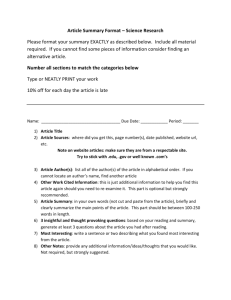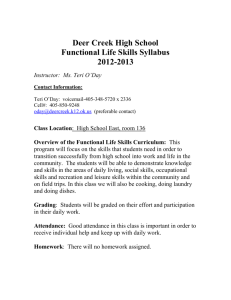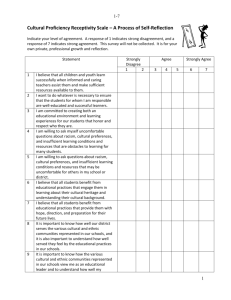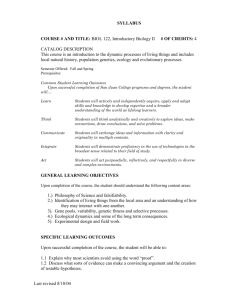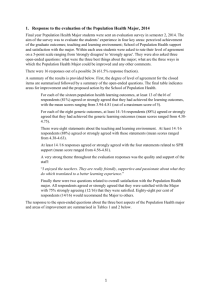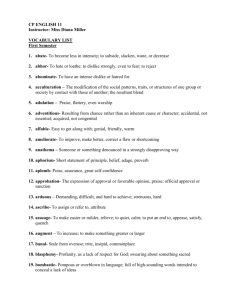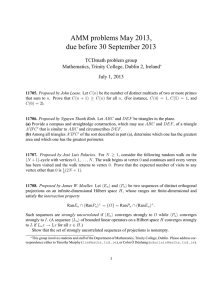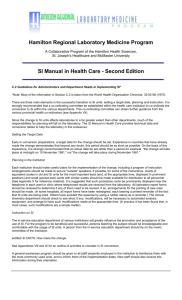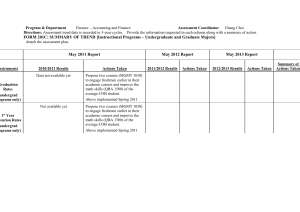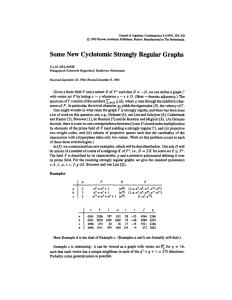Teaching Philosophy: Respect, Rigor, Engagement
advertisement
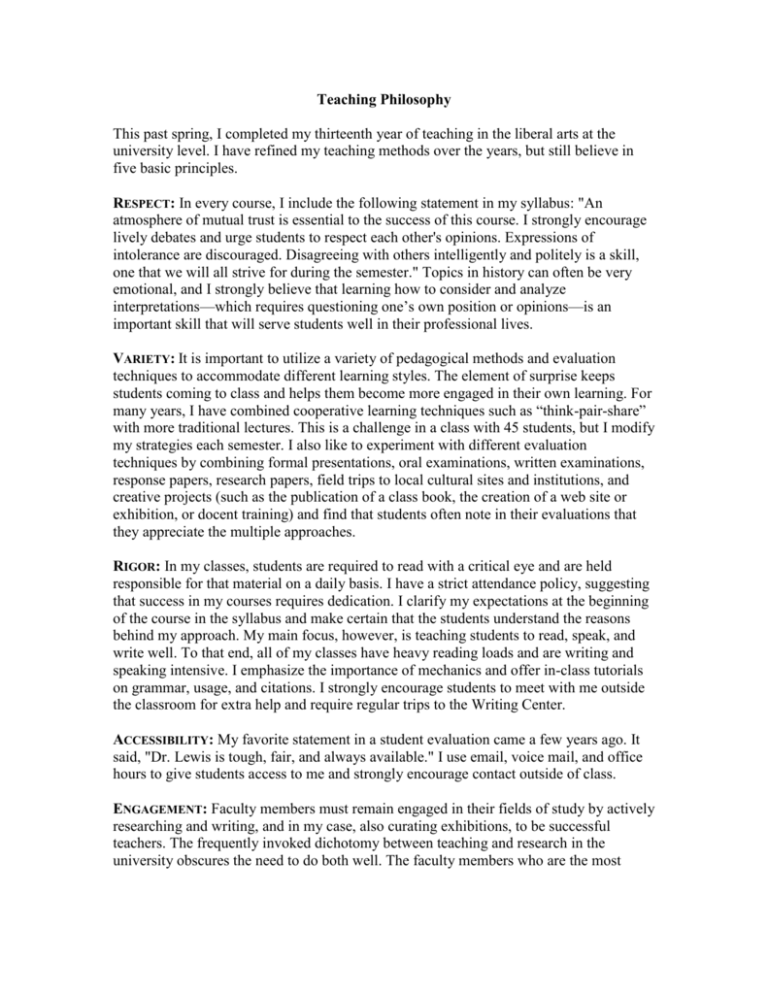
Teaching Philosophy This past spring, I completed my thirteenth year of teaching in the liberal arts at the university level. I have refined my teaching methods over the years, but still believe in five basic principles. RESPECT: In every course, I include the following statement in my syllabus: "An atmosphere of mutual trust is essential to the success of this course. I strongly encourage lively debates and urge students to respect each other's opinions. Expressions of intolerance are discouraged. Disagreeing with others intelligently and politely is a skill, one that we will all strive for during the semester." Topics in history can often be very emotional, and I strongly believe that learning how to consider and analyze interpretations—which requires questioning one’s own position or opinions—is an important skill that will serve students well in their professional lives. VARIETY: It is important to utilize a variety of pedagogical methods and evaluation techniques to accommodate different learning styles. The element of surprise keeps students coming to class and helps them become more engaged in their own learning. For many years, I have combined cooperative learning techniques such as “think-pair-share” with more traditional lectures. This is a challenge in a class with 45 students, but I modify my strategies each semester. I also like to experiment with different evaluation techniques by combining formal presentations, oral examinations, written examinations, response papers, research papers, field trips to local cultural sites and institutions, and creative projects (such as the publication of a class book, the creation of a web site or exhibition, or docent training) and find that students often note in their evaluations that they appreciate the multiple approaches. RIGOR: In my classes, students are required to read with a critical eye and are held responsible for that material on a daily basis. I have a strict attendance policy, suggesting that success in my courses requires dedication. I clarify my expectations at the beginning of the course in the syllabus and make certain that the students understand the reasons behind my approach. My main focus, however, is teaching students to read, speak, and write well. To that end, all of my classes have heavy reading loads and are writing and speaking intensive. I emphasize the importance of mechanics and offer in-class tutorials on grammar, usage, and citations. I strongly encourage students to meet with me outside the classroom for extra help and require regular trips to the Writing Center. ACCESSIBILITY: My favorite statement in a student evaluation came a few years ago. It said, "Dr. Lewis is tough, fair, and always available." I use email, voice mail, and office hours to give students access to me and strongly encourage contact outside of class. ENGAGEMENT: Faculty members must remain engaged in their fields of study by actively researching and writing, and in my case, also curating exhibitions, to be successful teachers. The frequently invoked dichotomy between teaching and research in the university obscures the need to do both well. The faculty members who are the most effective in the classroom are often the ones most interested in publishing, presenting at conferences, and collaborating with colleagues.

